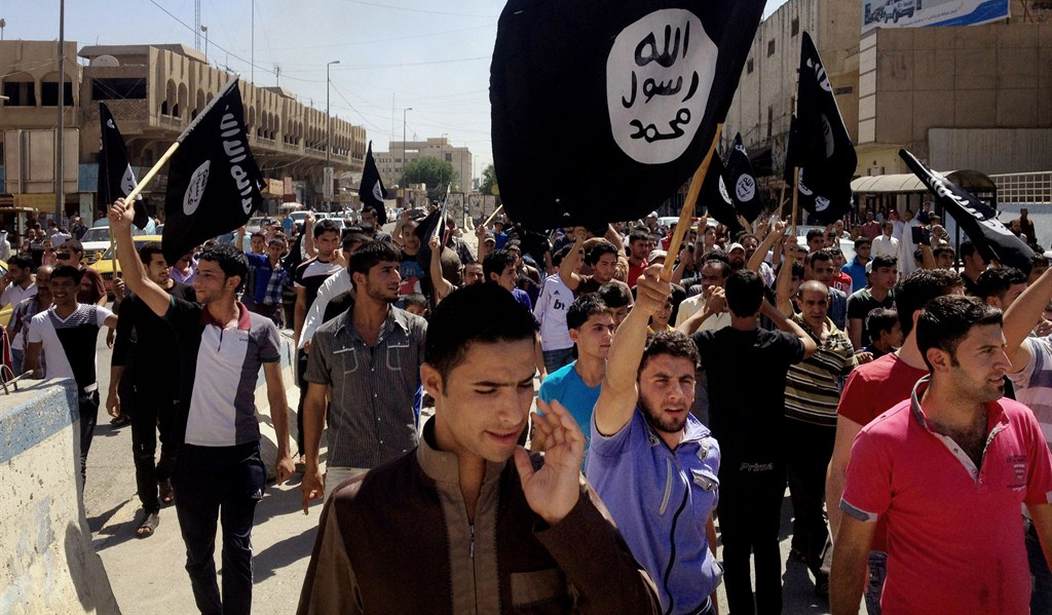ISIS reportedly used chemical weapons against Kurdish forces in Iraq on Wednesday, according to The Wall Street Journal.
The attack occurred in northern Iraq, where 60 Peshmerga fighters suffered injuries that appeared to be the result of chemical weapons.
From the Journal:
The officials said Islamic State could have obtained the mustard agent in Syria, whose government admitted to having large quantities in 2013 when it agreed to give up its chemical-weapons arsenal. The use of mustard agent would mark an upgrade in Islamic State’s battlefield capabilities, and a worrisome one given U.S. intelligence fears about hidden caches of chemical weapons in Syria, where Islamic State controls wide swaths of territory. It raises new questions about the evolving threat posed by Islamic State and the ability of U.S. allies on the ground to combat it. Frontline Kurdish, Iraqi and moderate Syrian forces say they aren’t getting enough U.S. support now to counter Islamic State’s conventional capabilities. Officials say these forces may need specialized equipment and training to help protect them against unconventional weapons if they become a fixture on the battlefield.
Mustard gas was among the chemical weapons banned by the United Nations in 1993. Here are some details as to how it affects its victims:
First used during World War I, the gas is effective at incapacitating its victims en masse. Sulfur mustard is generally colorless in its gaseous state, though it may have a faint yellow or green tint. It's most easily recognized by its trademark "mustardy" odor, though some compare its smell to that of garlic, horseradish or sulfur.
The gas is a vesicant, or blister-agent, causing redness and itching of the skin that results in yellow, pus-filled blisters. Because mustard gas strips away the mucous membranes of the eyes, nose and respiratory tract, victims may also experience irritation of the eyes, temporary blindness, runny nose, cough, shortness of breath and sinus pain. The digestive tract is also affected, resulting in abdominal pain, diarrhea, fever and vomiting.
Recommended
Mustard gas can cause victims to be permanently blind, disfigured, or develop respiratory diseases or cancer.
A senior military U.S. official tried to downplay it by telling the Journal that mustard gas had to be used in high volumes in order for it to be deadly, and that it didn't seem like ISIS had a lot of it.
The problem with downplaying it is that ISIS could one day stockpile enough mustard gas for it to be lethal, and it could still use it to gain advantage over our allies in battle.
It is unknown how ISIS was able to obtain the mustard gas, but it is believed that they either got it from the stockpiles of either Syrian president Bashar al-Assad or former Iraqi dictator Saddam Hussein. Wouldn't that mean Saddam... had weapons of mass destruction?
The Libyan military also gave a warning last year that ISIS had obtained chemical weapons. Deposed dictator Moammar Gadafi had 20,000 cubic tons of mustard gas, and it is believed that ISIS got hold of it and was testing it nearby Tripoli.
The Kurds have also accused ISIS of using chlorine gas back in March, which is Assad's favorite chemical weapon.
It sure would be nice if Obama had a complete strategy to combat ISIS.

























Join the conversation as a VIP Member